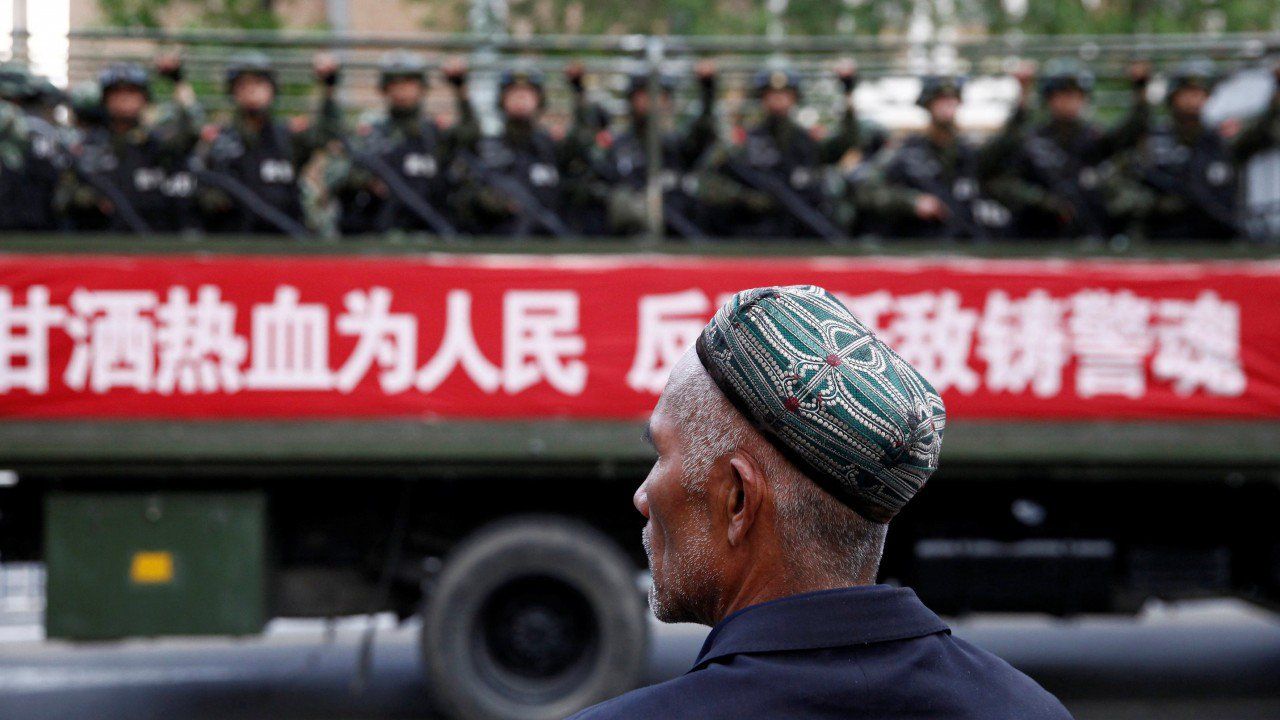
A global coalition of nearly 300 scholars on Monday called on Beijing to abolish its “transformation through education” campaign against China’s ethnic Uygur population, and appealed for increased diplomatic and legislative pressure on the Chinese government over the matter.
In a statement delivered on behalf of 278 academics from 26 countries, the group of self-titled “concerned scholars” said immediate action was needed “to prevent setting negative future precedents regarding the acceptability of any state’s complete repression of a segment of its population, especially on the basis of ethnicity or religion.”
Watch: Xinjiang explained
Up to 1 million ethnic Uygurs, Kazakhs and members of other largely Muslim ethnic groups are reported to be detained in extrajudicial internment camps in northwestern China’s Xinjiang Uygur autonomous region, a crackdown that began in early 2017.
After scrutiny by the United Nations and other international bodies, official statements from Chinese authorities have recently shifted from denial to justification, arguing that re-education is needed to combat the spread of extremist religious ideology and terrorism.
Speaking out: Uygurs in US break silence on China’s crackdown
The scholars’ call for action – which also included an appeal for countries engaged in China’s Belt and Road Initiative to make their involvement in the infrastructural development programme contingent on the abolition of mass internment camps — comes amid mounting evidence that Beijing is expanding its security crackdown in Xinjiang.
Speaking at a press conference convened at the National Press Club in Washington, Sean Roberts, director of George Washington University’s International Development Studies Program, said: “We felt it critical for the scholarly community to also take a stance on this issue.”
Members of the coalition came from a variety of fields, including China studies, Central Asian studies and Islamic studies, said Roberts, an associate professor of international affairs.
Referring to the Chinese president and to Chen Quanguo, the new Communist Party chief in Xinjiang, the scholars’ statement said: “We call on states and institutions to issue formal statements demanding that Xi Jinping and Chen Quanguo immediately abolish the ‘transformation through education’ detention system and release all Uyghur, Kazakh, Kyrgyz
and other detainees.”
The petition also included demands on governments around the world to levy economic sanctions on Chinese officials and firms – both Chinese and foreign – that are engaged in the provision of technology being used in the execution of the government’s security policies.
Such action is already under consideration by the US Congress, after the introduction of bipartisan legislation this month.
The bill, the Uyghur Human Rights Policy Act of 2018, would commit the US government to pursuing economic sanctions against a number of Chinese officials, including Chen, who is widely considered to be the driving force behind the crackdown on the region’s Uygur, Kazakh and other largely Muslim ethnic groups.
China could face US punishment over Xinjiang Uygur camps under new bill
That legislation was welcomed by Mihrigul Tursun, a Uygur woman invited to speak at Monday’s press conference to share her experience of being held at a mass internment camp.
Speaking through a translator, Tursun, 29, recounted her ordeal of a three-month detention this year, during which she said she was beaten and tortured, forced to sing songs in Mandarin professing loyalty to the Chinese president and kept in a cell with more than 60 other women, nine of whom she said died during the time she was interned. She said she was released in April after being made to sign a statement vowing that she would “never do anything to harm China” and that the police never interrogated or tortured her.
Source: Owen Churchill, US correspondent


